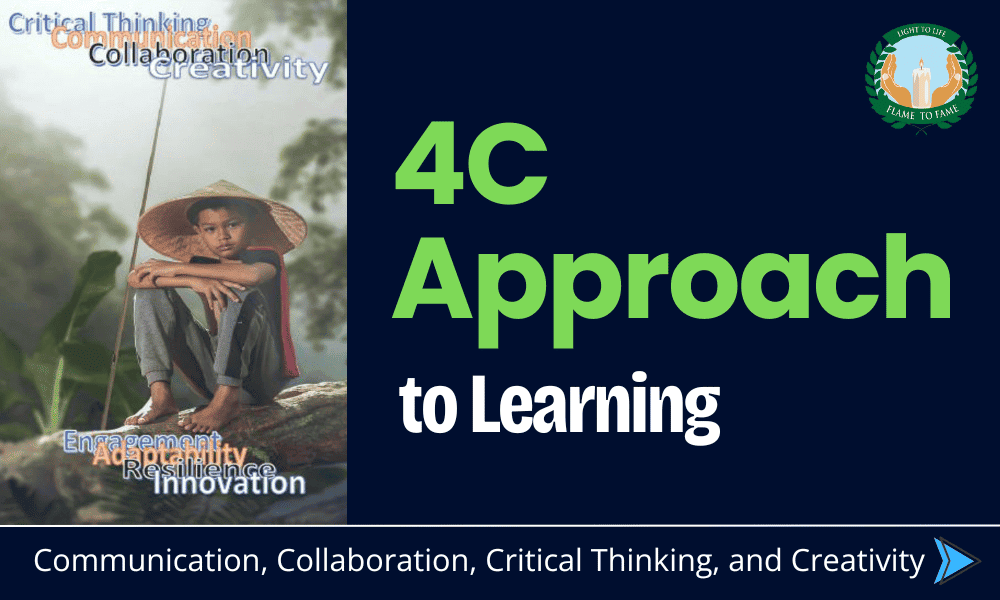
4C Approach to Learning
- 1 Section
- 2 Lessons
- 1 Quiz
- 0m Duration
4C Approach to Learning
The 4C Approach to Learning is a transformative educational framework centered on four essential skills: Communication, Collaboration, Critical Thinking, and Creativity. Designed to shift education from passive, lecture-based teaching to a more dynamic, student-centered experience, the approach promotes deeper engagement and real-world readiness. It is grounded in a constructivist ideology that encourages students to actively build knowledge through dialogue, exploration, and hands-on learning, while teachers serve as facilitators rather than traditional knowledge-givers. Each of the 4Cs plays a vital role: communication fosters clear expression and active listening; collaboration emphasizes teamwork; critical thinking sharpens analysis and decision-making; and creativity drives innovation and problem-solving. Together, these skills empower students to navigate both academic and personal challenges with adaptability and confidence.
The document emphasizes that successful integration of the 4Cs relies on thoughtful curriculum design, the use of project-based and inquiry-driven methods, and leveraging digital tools to enhance interactivity and inclusiveness. Teachers are encouraged to begin with small, focused implementations—such as group discussions or student presentations—and expand gradually based on feedback and reflection. Benefits for students include improved motivation, deeper thinking, stronger interpersonal skills, and greater confidence. For teachers, the approach revitalizes instruction, encourages professional collaboration, and fosters a greater sense of purpose and satisfaction. Beyond academics, the 4C model supports character development by helping students take ownership of values like empathy, respect, and responsibility through lived experiences. Ultimately, the 4C Approach creates a vibrant, inclusive learning environment where both students and teachers grow together, making learning an engaging, meaningful, and joyful journey.